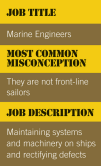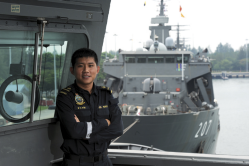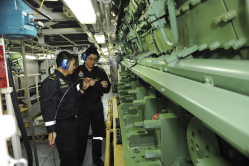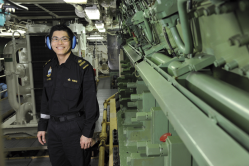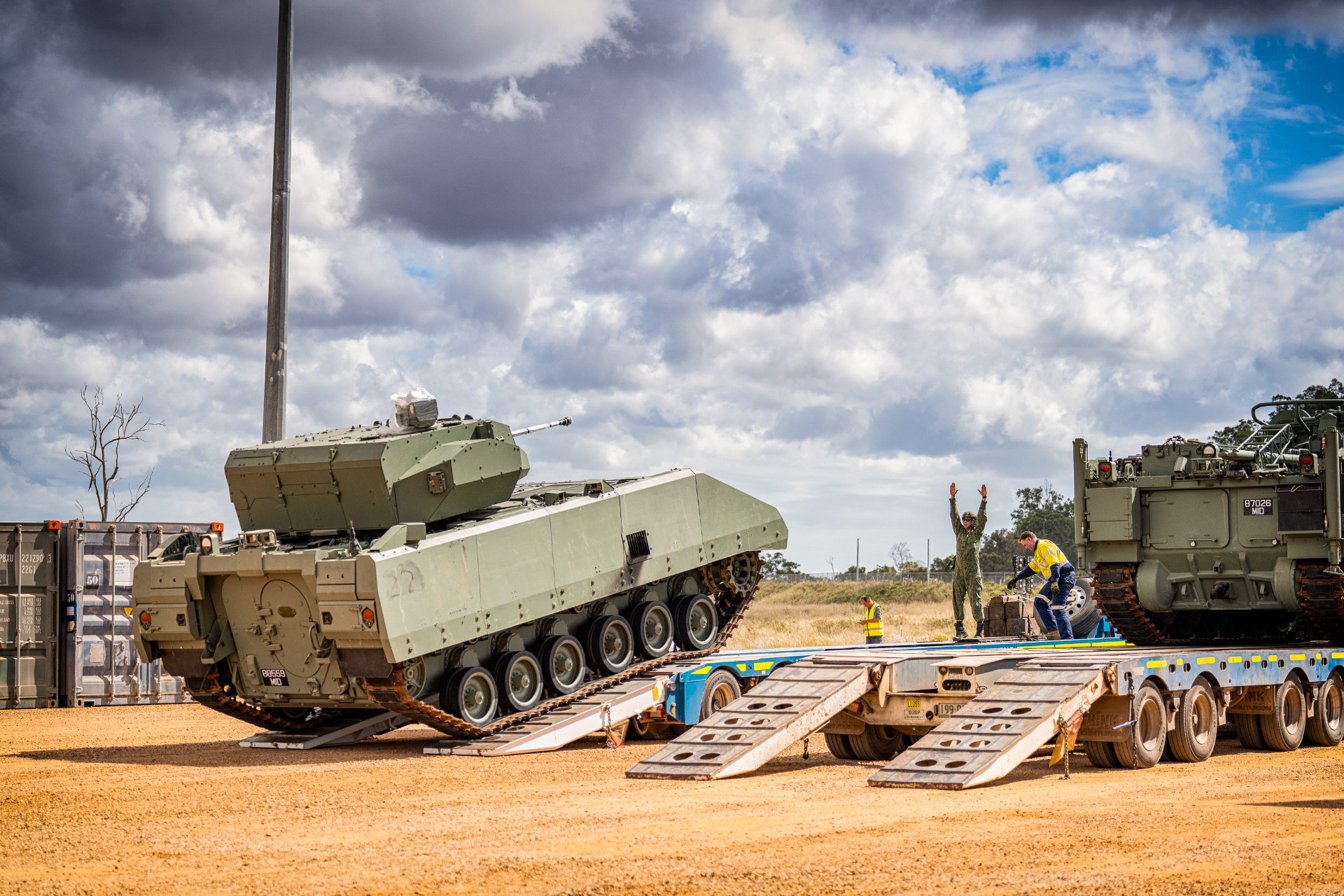OPS & TRAINING
MOVING SHIPS FROM DOWN BELOW
24 Dec 2010
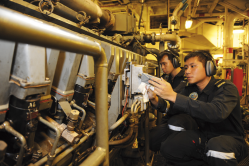
They work in oven-baked conditions of up to 60 degrees Celsius and are affectionately known as the "underground people" by virtue of their work location. In this fifth of a six-part series on lesser-known vocations, PIONEER checks out what marine engineers do.
Those accustomed to the comforts of a peaceful, air-conditioned office will probably not last a minute in the marine engineers' workplace.
The deafening whir of the engines and the intense heat generated by the enormous machines make for challenging conditions in the engine room in the lower deck.
And yet, in this room lies the ability to power ships weighing as much as 6,000 tonnes (6 million kg).
If the control hub, or the Combat Information Centre, is likened to the brain of the Republic of Singapore Navy's (RSN's) ships, then the engine room must be the heart.
As aptly described by Lieutenant Colonel (LTC) Kenny Chen, the Commanding Officer of the Landing Ship Tank RSS Endeavour: "Marine engineers make sure the 'heart' is pumping, otherwise the ship can't function and is as good as a sitting duck."
All systems go
On ships, marine engineers are in charge of the engines and systems that include propulsion, power generation and air-conditioning, said Military Expert (ME) 3 Eric Wong, a marine engineer on board the Formidable-class frigate RSS Formidable.
He elaborated: "We carry out preventive and corrective maintenance on all the equipment, from engines to generators. To minimise the failure rate, we maintain our equipment on a regular basis to ensure that they're in tip-top condition."
Besides the engine room, marine engineers have a second office the Machinery Control Room.
ME2 Poh does not mind the late nights spent fixing defects on the ship as he sees each task as a part of what keeps operations running smoothly.
"In this room, we monitor all the systems on the ship to make sure that they are working properly," said Marine System Supervisor ME2 Poh Wen Chye of RSS Endeavour.
The marine engineers are also in charge of Fire Fighting and Damage Control on the ships, where they ensure that personnel on board are equipped with the necessary skills to handle any emergency out at sea.
Trained for anything
Given the sheer number of systems and machinery they work with, it is necessary for marine engineers to be equipped with the technical know-how.
"Most of our marine engineers are ITE (Institute of Technical Education) graduates and diploma holders, with backgrounds in marine, mechanical or electrical engineering," explained LTC Chen.
Marine engineers are in charge of the engines, propulsion, electrical and air-conditioning systems on board ships. Here, ME3 Wong (right) and another marine engineer, ME1 Eric Chiam are performing a check on the lubricating oil level with a dipstick.
Training for the engineers includes equipping them with vocational skills and knowledge. For example, at the RSN's Training Command, they are taught the functions of engines and characteristics of different systems on ships.
"This gives them the principles and theories, which are backed by hands-on training on ships to hone their engineering techniques and procedures before they are deployed to the ships," said ME6 Toh Hai Liang, a Senior Marine Engineer in 185 Squadron.
With the thorough training marine engineers receive, rectifying machinery defects is not the hard part of their job. What is challenging is the time frame they are given to do it, said ME3 Wong.
He continued: "Out at sea, machinery malfunctions can hamper our operations, so we always need to correct the defects as soon as possible so that the ship can continue with its operations."
ME2 Poh agreed: "There were a few times when some critical machinery malfunctioned, and my team worked overnight to fix it in time for the next day's exercise."
ME3 Wong believes that as a marine engineer, he fights alongside combatants in ensuring that the ship functions in tip-top condition.
Sailors at the front-line
It is such instances that highlight the importance of marine engineers to the ships.
Said ME3 Wong: "We're not exactly combatants, so people have a tendency to think we're not front-line sailors. But to me, we are as much in the front-line as the combatants, because without the engine, the ship cannot move; without power generation, you can't fire missiles."
ME2 Poh added: "As the technical crew, even though we're usually behind the scenes, we know that we're just as important as the operations personnel.
"That's why each time I accomplish a task that's given to me, whether it is maintenance work or rectifying defects, it gives me satisfaction knowing that I'm contributing to the mission."
Their efforts are not lost on their superiors like LTC Chen, who said: "When things on board the ship don't work, and you see the engineers trying their best to fix it, you truly appreciate them for working so hard despite their unfavourable work conditions."
ALSO READ IN OPS & TRAINING
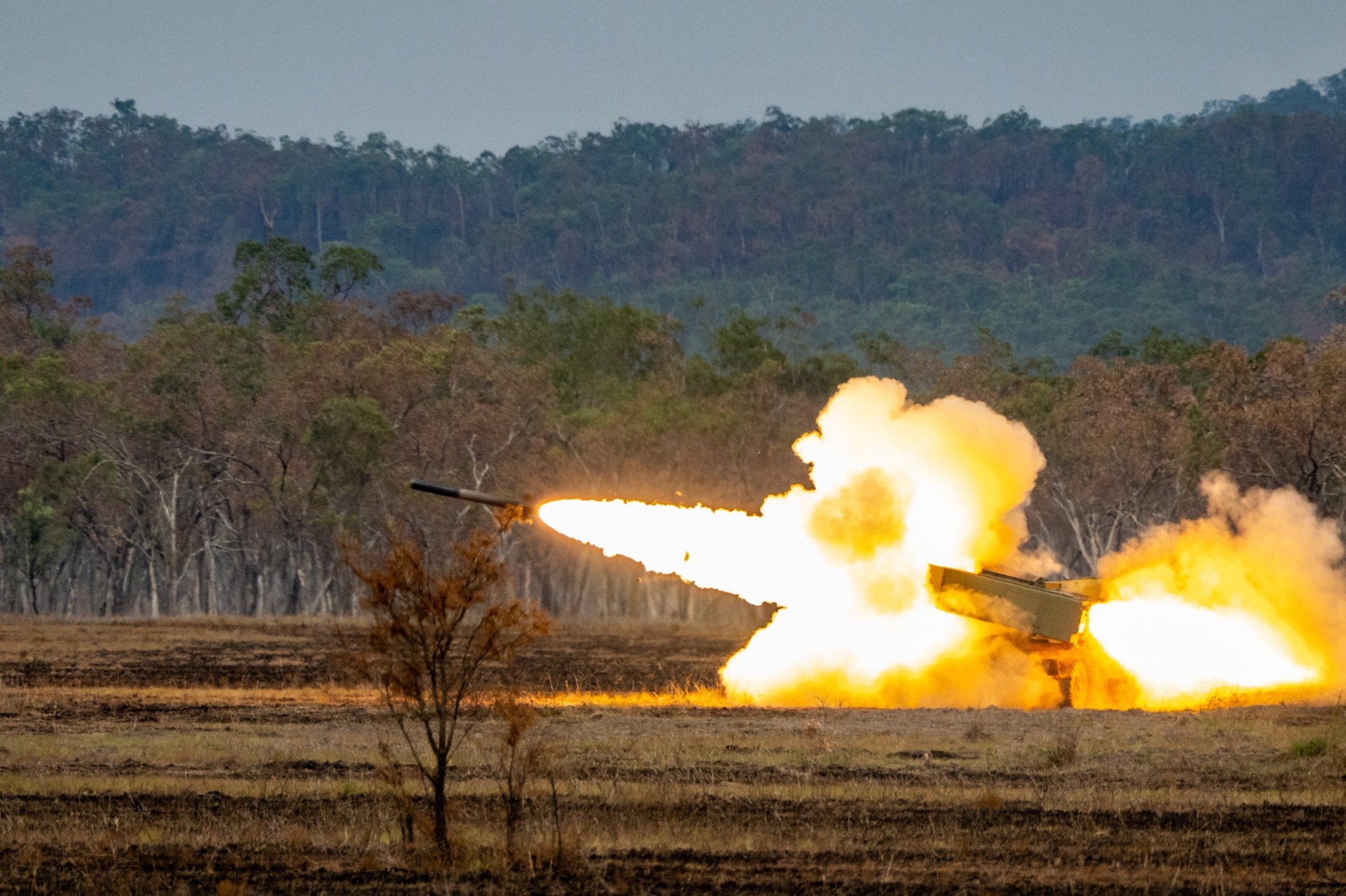
Exercise Wallaby 2025: To see better, shoot faster
31 Oct 2025
The SAF focuses on complex strike missions and multi-domain integration in Exercise Wallaby 2025, the 35th edition of its largest unilateral overseas exercise.
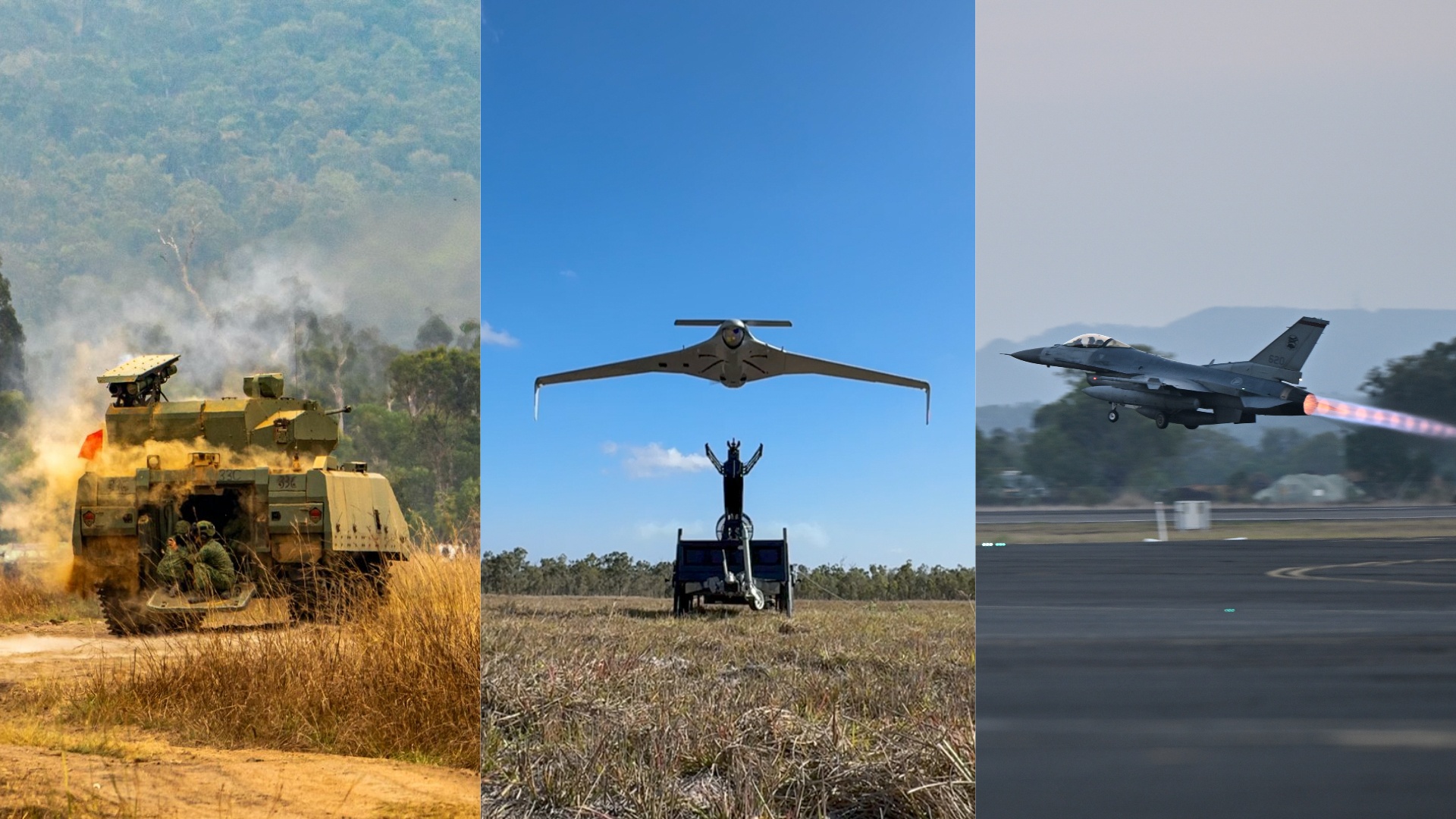
Ex Wallaby 25 – Greater Integration and Complexity
25 Oct 2025
The 35th edition of the SAF’s largest unilateral overseas exercise is an opportunity for expanded scale and deeper integration towards an effective, networked fighting force.

Ex Forging Sabre ramps up use of unmanned assets in integrated strike operations
12 Sep 2025
In this 10th edition of Exercise Forging Sabre, the SAF sharpened its cutting edge for the dynamic modern battlefield, with expanded integration between manned and unmanned platforms.


